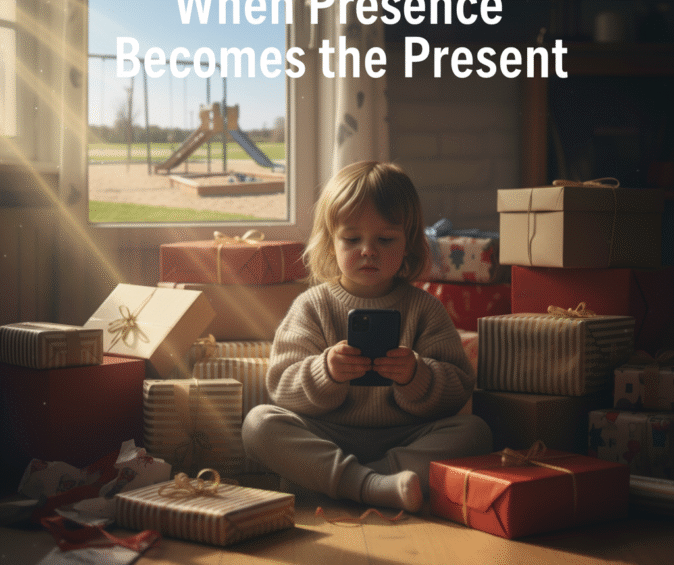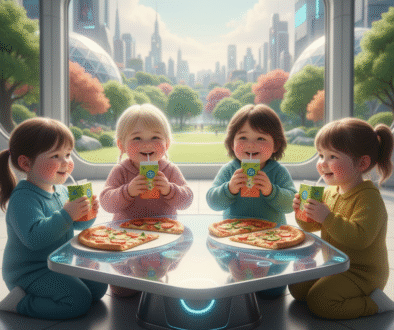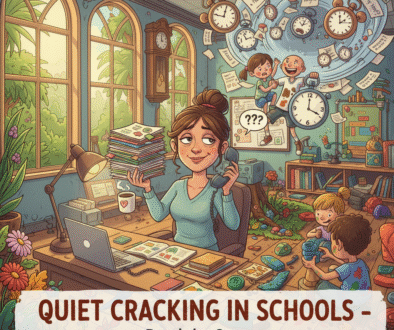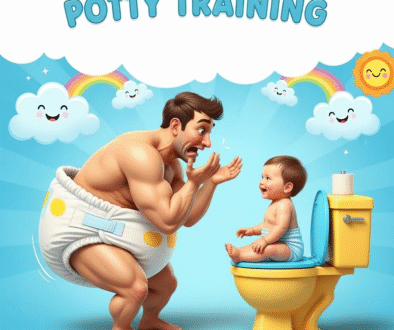
Buying Love
How We’re Raising Tiny Consumers and Calling It Care
I noticed something strange — and I mean globally strange. Many parents, regardless of which continent their Google Maps dot flashes from, seem to live under the same spell. And I’m not talking about parents who pull all strings from all corners of possibility just to feed their kids — those are real heroes. I’m talking about the other crowd. You know who you are. The ones who find reasons, explanations, and Instagram captions for what’s really just a soft, shiny form of emotional outsourcing.
Let’s be honest — the line between love and logistics has blurred. We don’t raise children anymore; we curate experiences. We don’t teach patience; we deliver dopamine. And when guilt sneaks in, we swipe the card again — problem solved. Except, of course, it isn’t.
Because the fact is: you are first a parent, then a friend.
That’s not my rule — that’s developmental psychology, Vedic philosophy, and good old common sense all agreeing for once. The role of a parent is not to make a child happy every moment; it’s to help them become a human who can handle the moments when happiness leaves the room.
And yet — here we are.
In Poland, where I come from, there’s a lovely old tradition called First Communion. Once upon a time, it was a sacred rite, a family’s quiet celebration of faith and growth. Now? It’s a full-blown gala. Eight-year-olds get iPhones, drones, laptops, sometimes even quads. I sometimes wonder — what’s left for the wedding? A small island in Greece? Maybe a golden duck that lays bitcoins? We lost the meaning somewhere between the catering and the camera crew.
And in India — oh, that’s another movie altogether. Here, the credit card is the new genie in the lamp. Rub, swipe, wish — and your child’s social standing instantly rises. “My kid also has it,” you say, and for a brief, glittering second, you feel peace. Until, of course, the bill arrives — both literal and emotional. Because this show must go on, right? The proving never ends. It’s like watching a horror film where you know the ghost will appear, you feel the tension building, the music gets louder — and yet, you sit there, trembling, watching your own creation unfold.
Even in my classroom, where children are barely three or four, I see gadgets I didn’t even know existed. Laptops, tablets, designer toys that look like they have their own Wi-Fi connection. When my children were that age, they were happy with LEGO, wooden blocks, puzzles, and the occasional superhero obsession. And I mean the good old superheroes — the ones that made us believe in kindness and courage. Not the kind that glow in the dark and cost half your salary. Mostly, we ran outside — forest, park, a stick became a sword, a leaf became a treasure. We played until the light disappeared and the world smelled of grass and air. And I will not even mention what was considered a “wow” for people like me back then. Let’s just say it didn’t require a charging cable.
And it’s not just gadgets. Branded clothing, every little trinket or “must-have” item — they get it all, because the parent has no time to actually be with them. “Go on, have it,” we say, swiping, ordering, checking boxes, all in the name of love. But here’s the truth: if you decide to be a parent, you must be the parent. Not didi, not grandma, not Pa. You. It’s your responsibility, your gift, your privilege. The perks of parenthood come with the work — being there, guiding, setting limits, listening — not just buying a label or a smile.
That’s the difference.
Today’s “wow” has become the default language of love. We buy it, we gift it, we wrap our guilt in shiny paper and call it parenting. But here’s what that does — it tells a child that joy comes from things, not from people. It trains their little nervous systems to chase novelty instead of connection. It replaces presence with packaging.
Children who grow up being “bought” learn to measure worth by what’s given, not what’s shared. They learn that love can be upgraded — version 2.0, 3.0, until they forget how to sit still, how to talk, how to just be.
And the irony?
What kids really need costs nothing. A conversation. A walk. A silly game. A parent who actually looks up from their own screen and listens. Being there — truly being there — is the ultimate luxury.
Because at the end of the day, no gift can outshine the feeling of being seen. And if that’s not love, what is?
So the next time you’re tempted to “just buy it,” ask yourself — are you buying joy, or silence? Connection, or convenience? Because every purchase made out of guilt teaches your child the same pattern: When I feel empty, I buy.
And that, my dear grown-up children, is not love. That’s retail therapy in a baby bottle.
“Children need your presence more than they need your presents.” — Jesse Jackson
Why Toddlers Don’t Listen Even When You Scream


